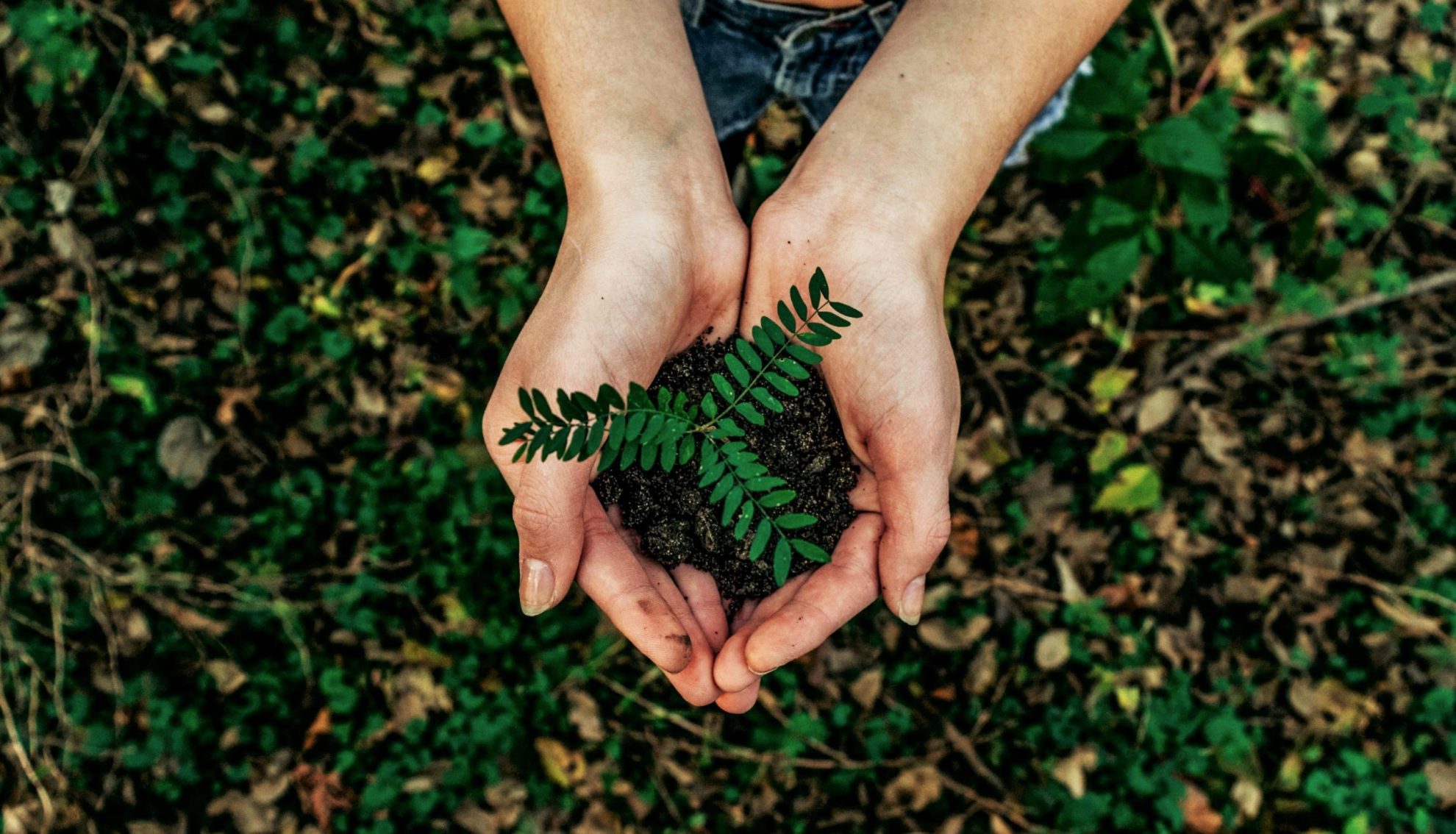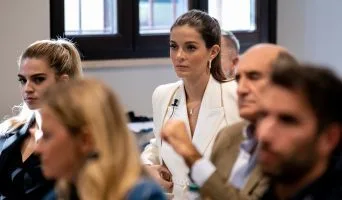How to combine sustainable development and growth. The role of NGOs and women

In an era of such rapid and profound change as ours, the issue of sustainable development is attracting increasing attention, especially in recent years.
Awareness of the impact of mankind on the world of social inequalities declined with new tools that allow us to rethink the economic dimension from the point of view of a fairer future, capable of combining economic growth with well-being.
In fact, following the teachings of the 1998 Nobel Prize winner for economics Amartya Sen, it will be necessary for the near future to give more and more space to ethical issues in the study of economic science to deal, through a multidimensional approach, with all the problems of our time concerning precisely the sustainability of economic processes, distribution, poverty, and globalization.
This new approach will bring about a change in the competitive landscape of organizations and will be an important key to the innovation of business models.
The World Commission on Environment and Development
The term sustainable development was first coined in 1972 for the first UN conference on the environment and corrected in 1987 with the Brundtland Report, issued by the WCED, the World Commission on Environment and Development, which defined it as “development that meets the needs of the present without compromising the ability of future generations to meet their own needs”.
This is a very broad concept that includes environmental protection but also the creation of an economy that is more attentive to the planet as a whole, with an eye to society, institutions, and peoples.
We wanted to discuss this interesting and topical issue with Daniele Fattibene, Professor of the Specilized Master in Agribusiness Management at the Rome Business School, who said:
“COVID 19 challenged the ways and means by which to stimulate growth and made the transition to sustainability more complicated by all the shocks the global community is facing, including the war in Ukraine. The goal today is to create the conditions for a sustainable transition, a process that will not be easy and will bring winners and losers. The action will have to be dual: on the one hand it will be necessary to plan interventions to accompany those who have suffered the greatest economic and social consequences as a result of the pandemic, and on the other to sow the seeds for a new change and help future leaders to be the protagonists. In spite of the last two difficult years, investments in sustainability are still being made, and this is a very positive sign. Italy will play a decisive role in this process”.
The 17 Sustainable Development Goals
Sustainable development passes through 17 key points, included in the 2030 Agenda, the document signed in September 2015 by 193 UN member countries. The 17 SDGs (Sustainable Development Goals) represent an ambitious blueprint for improving the world that aims to: defeat extreme poverty, combat world hunger, ensure health and well-being for all, promote quality education, achieve gender equality, ensure access to clean water and sanitation, ensuring access to clean energy, stimulating economic growth and ensuring decent work, building quality infrastructure, reducing inequalities between nations, making cities and communities sustainable, promoting sustainable patterns of production and consumption, combating climate change, conserving and consciously using the oceans, seas and marine resources, promoting sustainable and conscientious use of the earth’s resources, making the Earth a safe place by reducing all forms of violence, strengthening the global partnership for sustainable development.
Developing and underdeveloped countries
After centuries of seeking profit at any cost, the world has finally realized that it has a responsibility toward developing and underdeveloped countries. In other words, the change we are witnessing is aimed at overcoming economic paradigms based solely on the search for profitability: today, on the contrary, the aim is to build an inclusive and cohesive globalized society with an eye to solidarity, understood in its etymological meaning of ‘mutual assistance’
In this scenario, we can undoubtedly speak of a positive economy, that branch of the economy that addresses the challenges of society and future generations while seeking to protect the environment and individuals.
“Low- and middle-income countries must first overcome the inequalities exacerbated by COVID 19, starting, of course, with access to vaccines, medicines, tests and all the tools to overcome the pandemic. Secondly, they must tackle the internal and external debt crisis, which has increased dramatically due to the health emergency, and find a social protection mechanism to finance economic development and reduce inequalities in their territories. They will also have to be accompanied towards a transition capable of closing the gap and inequalities with the developed countries. For example, if we think of climate change, it will not be easy to convince them to move towards a carbon-neutral world. Unfortunately, the poorest countries are also the most exposed to the problems of unsustainability. We also know that population ageing and demographic problems will be crucial in the next two decades. I am convinced that a very important role in this respect will be played by the new generations, women and businessmen who will be the future leaders.“
The situation in Italy
The PNRR, the National Recovery and Resilience Plan that illustrates the proposals for allocating Italian resources to the Next Generation EU, approved on 22 June 2021 by the European Commission and on 13 July by Ecofin, the Economic and Financial Council, represents an unprecedented opportunity to rewrite the country’s future also in terms of sustainability, through a path of ecological and environmental transition.
“Italy, like other European countries, with the financial capacity to overcome the economic shock following the pandemic, was able to benefit from ambitious plans, unlike developing countries that had to rely on international cooperation, donations, etc.”. The PNRR is an extremely important tool for the national government, regional governments and local administrations to give impetus to the transition process and to ensure that the conditions that will be created over the next two decades are suitable for fully embracing the ambitions of the European Green Deal and all the Sustainable Development Goals set. It is an appointment that Italy cannot miss to overcome and reduce inequalities, to decrease unemployment, to support small and medium-sized enterprises towards the ecological transition and above all to invest in education.”
The role of NGOs
In the globalized world, NGOs play an increasingly important role as they accompany countries in sustainability processes and monitor that plans, goals, and programs are implemented and effective. Indeed, in a context where official development and cooperation assistance is decreasing, governments need to make sure that levels of support and aid remain constant, especially after the Covid crisis that hit the most vulnerable countries hard.
“In Italy we will see a sort of ‘generational change’ in the top roles of sport in the coming years, both at private and institutional level, and the next managers will have “Women, the elderly, the younger generation, displaced persons, migrants. We have to make sure that the level of aid is as high as possible, because we will face many problems in the coming months, including food security. The war in Ukraine will certainly have implications for the various African nations that are heavily dependent on grain imports from Russia and Ukraine.”
Best Practices
The last 20 years have seen a considerable increase in interest in the issue of environmental sustainability in the field of food security. The European Union itself has launched a specific policy, called FOOD 2030, which is based on the main priorities of food and nutrition security and is part of the bio-economy ecosystem that “reconciles economy, environment, and society”.
New technology platforms will accelerate the transformation of global agrifood.
Properly managing a supply chain, for example, ensures that quality food arrives safely and helps detect food-borne diseases, contamination, and potential outbreaks before it reaches the consumer. Digitization also makes supply chains more effective in terms of waste management or pesticide fertilizer use.
“In my experience, I have seen that there are many cities around the world that are implementing effective food waste management policies and food governance models with a focus on sustainability. This creates the conditions for new sectors such as vertical agriculture to bring diversified solutions to consumers, who are sensitive to the traceability of the food supply chain that ensures higher product quality. This sector is very active and dynamic and shows how it is possible to link transparency, profitability and consumer satisfaction.”
The role of women
Sustainability does not only mean attention to the environment and ecological transition: it is a much broader concept that concerns, as mentioned, the relationship between economy and society.
There can be no real cultural revolution without achieving gender equality, which is one of the 17 goals contained in the UN Sustainable Development Report and the EU Programme. However, there is still a long way to go to overcome the ‘glass ceiling’ – an expression first used by the Wall Street Journal in 1984 in a famous article entitled ‘The Glass Ceiling: Why Women Can’t Seem to Break The Invisible Barrier That Blocks Them From the Top Jobs’.
“Women are definitely drivers for change in different sectors of society. If we look, for example, at agriculture in low- and middle-income countries, they represent the vast majority of the workforce, but they do not have the same opportunities as men. They have very limited access to capital markets and food markets, and reduced access to land ownership. So governments and NGOs need to support them so that women can become the real drivers of change, because they bring new solutions and new approaches to communities.“
DANIELE FATTIBENE
Daniele Fattibene is the coordinator of the European Think Tanks Group (ETTG), a network that brings together the main European think tanks dealing with European development cooperation policies. Daniele has worked for many years as a researcher at the Istituto Affari Internazionali (IAI) in Rome and has collaborated with numerous NGOs, think tanks, and universities, such as Save the Children, Oxfam, the Barilla Center for Food and Nutrition (BCFN) and the Rome Business School. He graduated in International Relations first at the University of Naples “L’Orientale” and then at the University of Bologna (Forlì campus) and spent research periods at the St. Petersburg State University, the Polish Institute of International Affairs (PISM), and the United Nations University-Institute on Comparative Regional Integration Studies (UNU-CRIS) in Bruges.




